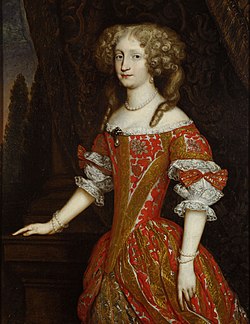Family Matters – Dynastic freedom of action for women
Dynastic freedom of action for women
Family Matters, led by Katrin Keller, is a cooperation project with the Institute for Habsburg and Balkan Studies (IHB).
Everyone in Austria and far beyond is probably familiar with Empress Maria Theresa, who ruled the Habsburg monarchy in the 18th century and exerted great influence on European politics. But have you ever heard of her grandmother Eleonora Magdalena? Although she was empress for almost 40 years and the mother of two emperors, namely Joseph I and Charles VI, the father of Maria Theresa, and although she exerted considerable influence on the politics of her time, she is completely unknown to most people today. This is not least due to the fact that there has been little research into her person to date. And this in turn is mainly due to the fact that it was previously thought that there were no documents on which to base a study of the empress and her political and family role.
However, this has now changed: Over 1,000 letters have surfaced in Munich that the empress wrote to her father, Elector Philipp Wilhelm von der Pfalz, and her brother Johann Wilhelm von der Pfalz, in which she commented on politics, family and everyday life. As a result, it is now possible to trace very precisely how she lived and what political goals she pursued for the period between 1676, the year of her marriage to Emperor Leopold I, and 1716, the year of her brother's death. It can be seen that she worked with numerous people in Vienna, Düsseldorf, Neuburg on the Danube, but also in Cologne, Madrid and Rome. And it is clear whose side she took. She supported her numerous siblings as well as her own children and was involved in several of her brothers becoming bishops and thus princes of the Holy Roman Empire. Eleonora Magdalena prepared the marriages of her sisters, who married into Spain, Portugal, Poland and Italy. All the siblings corresponded with each other throughout their lives in order to support each other and play a role in European politics in different ways. The princely family, i.e. the dynasty, was an important framework for action for all of them, women and men alike, and strengthening the House of Palatinate-Neuburg and the House of Habsburg was Eleonora Magdalena's goal.
The project has three aims: Firstly, the empress's many letters are to be made available online so that anyone interested can view the exchanges and cooperation within the family. Secondly, further letters from the empress are being searched for in order to expand knowledge about her and her opportunities for action. And finally, the project deals with the question of what arguments and strategies the empress used to achieve her goals at a time when, at first glance, women did not appear to have any independent political options.
The ACDH-CH is responsible for the technical implementation of the project and the long-term archiving of the data.

Project lead
Katrin Keller, Austrian Academy of Sciences | Institute for Habsburg and Balkan Studies (IHB)
Contact (ACDH-CH)
Funding
FWF 10.55776/P34651
Project duration
10/2021–12/2024
